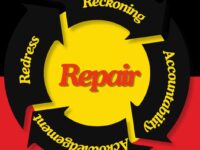Thirteen years ago, I embarked on my entrepreneurial journey, co-founding Hatchd, an agency dedicated to driving business transformation through digital products and services.
Since then, I have expanded my entrepreneurial portfolio, founding The Nest Venture Studio in 2019 and my most recent venture, Anni, in 2022 – an Advice as a Service (AaaS) platform designed to provide Aussies affordable, convenient and trusted access to advice by being flexible to their location, availability and budget.
Despite having two decades of experience in digital product strategy, marketing and software design and delivery, and having co-founded two successful start-ups in the past, it would be a lie to say I hadn’t experienced my fair share of challenges along the way. With International Women’s Day being celebrated later this week, it’s time to bring these challenges into focus.
Women are consistently underestimated in business
One of the biggest challenges as a female founder, and one that resonates with many women in the business world, is being severely underestimated by our male counterparts. It often feels like we, as women, have to work ten times harder to earn respect and trust in business.
While men demand respect by default, as a woman it takes more time and more diligence to command the respect I deserve for my success in business and entrepreneurship. However, there is a profound sense of accomplishment in earning respect through capability and intelligence, completely removing gender from the picture.
I love building teams filled with intelligent women, alongside men who appreciate and value a feminine leadership style and want to work with a team of amazing women. This is improving with the new generation of professionals who, in my experience, show equal respect for all genders and champion such change within businesses.
Raising funds
Raising funds as a female founder presents a unique set of challenges stemming from the systemic underrepresentation of women in investment firms and broking firms – making it inherently difficult for female founders to find allies in the investment landscape. This was certainly the case when we conducted Seed Funding for Anni and why 0.7 per cent of VC funding in Australia goes to businesses that are 100 per cent female-founded and led.
Connecting with female investors was particularly important for me with Anni. As the service addresses sensitive topics largely relevant to women’s experiences, male investors typically have a hard time connecting with the service’s USPs. When we have managed to connect to female investors, their insights have proved invaluable and they are typically more engaged with the idea.
Being continuously underestimated in business, combined with the lack of females in venture capital, has meant myself and Anni’s two male co-founders, Diranne and Tim, have had to strategise about my presence in VC meetings where audience response and perceptions of female leadership loom large. These challenges are magnified by the realities of doing business in Western Australia, where the entrepreneurial ecosystem isn’t conducive to female-led ventures.
Despite the challenges I’ve faced as a female entrepreneur, there is also nothing more rewarding than watching a business I’ve built from the ground up take off, knowing that I’ve had to overcome extra hurdles to get there. My biggest learning has been that being a realist and not taking anything personally in business is key to managing these challenges effectively. However, despite overcoming these obstacles and growing a successful business being extremely empowering, these difficulties are something women shouldn’t have to face.
In 2024 it’s time for Australia to push for equality, not just for female founders, but for women in all levels of business.










